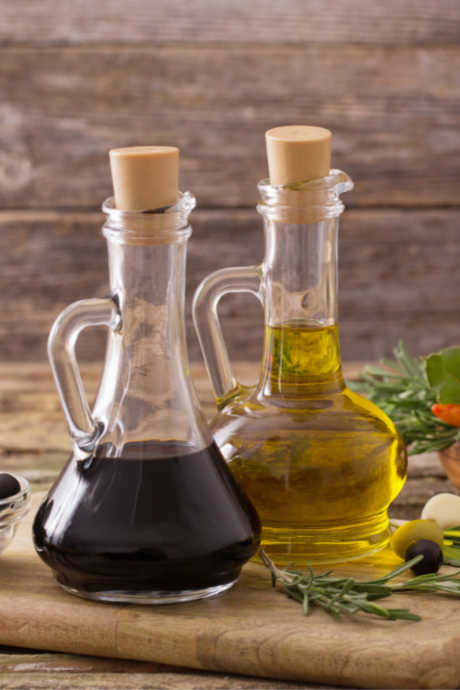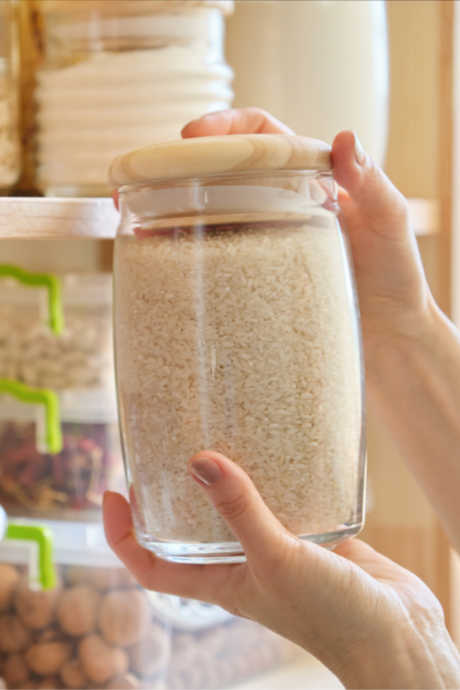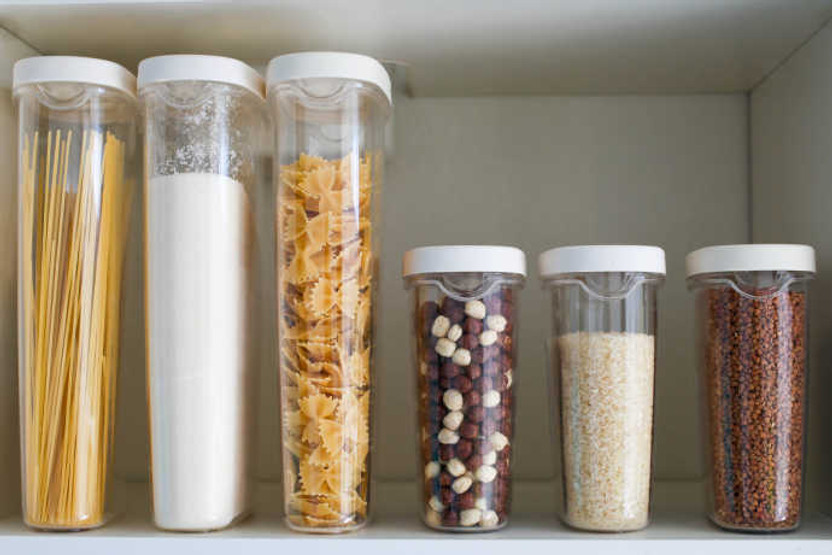Stock Up on Pantry Essentials
Posted by Julie on Jun 5th 2020
We know people have been cooking more frequently at home lately, and of course we’re all in favor of this trend. But we maintain that a well-stocked pantry is a smart idea no matter what season it is, or what may be happening in the world. When you have the building blocks of many recipes already on hand, you can whip up a delicious meal with only a quick trip to the store for meat or produce. In this post, we’ll focus on the dry goods that should always be at home in your pantry and spice cupboard.
Oil, Vinegar, and Seasonings
While oil, vinegar, and seasonings may seem incidental, they’re actually what make many foods worth eating. Consider the difference between pasta cooked in salted and unsalted water, or vegetables sauteed in oil rather than boiled or steamed. These essential ingredients don’t just add flavor to foods; they amplify and balance many foods’ natural flavors.
Oils: At minimum, we recommend keeping olive oil and vegetable oil (or another neutral-tasting oil) on hand. Vegetable oil is better for baking, and it has a higher smoke point than olive oil, which makes it ideal for the stovetop. Olive oil is key for making salad dressing, and it can also be used for cooking at lower temperatures.

Vinegars: While you might be tempted to grab a jug of white vinegar, we suggest using white vinegar for cleaning, not cooking. Instead, pick up three varieties: red wine vinegar, white wine vinegar, and balsamic vinegar. Between all of these, you will have what you need for dressings and sauces. In particular, balsamic vinegar is an excellent choice for reducing to a syrupy consistency and drizzling over vegetables.
Seasonings: It should go without saying that salt and pepper are essential. This combination belongs in nearly every savory dish, and salt helps balance sweetness in baked goods. You don’t need to grab one jar of every offering in the baking aisle, but several dried herbs and spices do belong in your cupboard. Start with the following list:
- Cinnamon
- Cloves
- Nutmeg
- Ginger
- Cumin
- Curry powder
- Chile powder
- Red pepper
- Paprika
- Bay leaves
- Oregano
- Rosemary
- Thyme
While you may find certain recipes call for other spices, with this list you’ll have the bulk of what you need on hand.
Baking Essentials
Even for those who don’t consider themselves bakers, it’s helpful to have several key staples on hand. If you spent much time in the kitchen, you’ll start to notice how often so-called baking essentials are ingredients in soups, casseroles, and sauces. Keep a steady inventory of them so you aren’t caught off-guard when you want to make a roux or sweeten a sauce.
Flour: All-purpose flour will suffice for most recipes. If you prefer to cook and bake gluten-free, try rice, oat, or almond flour.
Leavening: Keep a box of baking soda, a can of baking powder, and a jar of cream of tartar on hand. While you can make baking powder by combining baking soda and cream of tartar, we recommend stocking up on all three for the sake of convenience. Also, even if you don’t bake bread regularly, a couple packets of active dry yeast are a good idea too.

Sweeteners: Grab three bags of sugar: granulated sugar, confectioners sugar, and brown sugar. They all have distinct textures and act in different ways when cooking and baking. Although it may seem as if you can substitute one for another, we don’t advise doing so. We also recommend keeping a bottle of honey on hand, as it’s an excellent addition to homemade dressings.
Chocolate: If you stock nothing else chocolatey, keep a container of unsweetened cocoa powder in your cupboard. While some recipes are better when made with baking chocolate, and some outright require chocolate chips or chunks, you can whip up chocolate cake or brownies with cocoa powder.
Vanilla Extract: We know it’s expensive, but you’ll be glad you bought pure vanilla extract instead of the imitation variety. It’s important in baking, thanks to the depth of flavor it adds.
Other Dry Goods and Key Ingredients
Tomatoes: Tomato paste, tomato sauce, and whole canned tomatoes all deserve a place in your pantry. Of course we prefer fresh tomatoes when they’re in season, especially homegrown tomatoes, but the canned variety is far superior to the pale, mealy, out-of-season tomatoes in the produce section.
Beans: Whether you prefer dried beans or canned beans, stock up on this staple. We recommend keeping an assortment of black beans, white beans, and garbanzo beans on hand. They’re a key ingredient in soups and salads.
Rice and Pasta: These two starches are the base for a wide variety of dishes. We suggest both white and brown rice, along with jasmine or basmati if you like to cook Asian food. Any shape of pasta will do, though it’s helpful to have boxes of long pasta (like spaghetti or linguine) and boxes of short pasta (like farfalle or penne).

Corn: From canned corn to cornmeal and cornstarch, this farm staple is a staple in most kitchens too.
Broth or Stock: While we love making homemade stock, it’s especially handy to have cartons of packaged broth or stock on hand too. It’s essential for soup, and it adds flavor when used as a cooking liquid for pasta or rice.
Breadcrumbs: You can make your own breadcrumbs, but it’s helpful to have a box of panko on hand. Not only are breadcrumbs an ingredient in many recipes, they also add a delicious crunch when topping casseroles and baked pasta dishes.
Oats: We suggest keeping both old-fashioned rolled oats and quick-cooking oats on hand, but if you must choose one, go for the rolled oats. They are much better in cookies and crumbles, and they make a tasty bowl of oatmeal too.
Nuts: Almonds, pecans, and walnuts are the top three nuts you’ll find in a variety of sweet and savory recipes. Don’t worry about paying a premium for whole or half pecans or walnuts; choose pecan pieces or walnut pieces, which are fine for most applications. Of course, if someone in your family has an allergy to tree nuts, you’ll want to forego this ingredient.
Peanut butter or seed butter: Peanut butter isn’t just for sandwiches. Keep this key ingredient on hand for adding to sauces and baked goods.
If you know you’ll never cook with some of these ingredients, feel free to omit them. If there are other staples you know you use every week, feel free to add them. The goal is to be sure you have the majority of ingredients needed for the recipes in your regular rotation, so you only have to pick up a few items to make a delicious meal.

